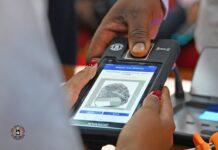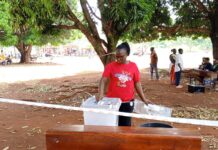Recently Dr Kizza Besigye, the founding leader of the Forum for Democratic change- FDC dropped a bombshell -declaring that he will not appear on the ballot as a presidential candidate in the 2021 elections.
Many didn’t expect this announcement; and felt like Besigye’s journey was now over in active politics since he was quitting something that has always defined his mission and character – the fight against Museveni’s leadership.
Although he clearly stated that he was only stepping aside from elective politics leaving that path (of the struggle) to other players both in the FDC and other opposition groupings, (so that he would concentrate on a fight he dubbed Plan B), several Ugandans saw it as an ultimate retirement from his role as Uganda’s key opposition figure.
Others interpreted it as a move to endorse Kyadondo East legislator, head of the People Power Movement and president of the National Unity Platform-NUP’s presidential bid, handing him the relay baton in the next election race against Museveni.
Nonetheless, URN went out to talk to several key people who know quite a bit about Besigye’s character and what has defined his legacy. We ask, what has survived of his more than two decades’ legacy in Uganda’s opposition politics and how has he succeeded or fallen short of transforming Uganda’s politics?
One of the books that make an in-depth analysis and insight into Besigye’s life and character is Journalist Daniel Kalinaki’s work named ‘Kizza Besigye and Uganda’s Unfinished Revolution’.
On-Page 92 Kalinaki tells one of the most fascinating stories that present president Museveni as a leader who had come to change Uganda’s situation from that of past presidents like Idi Amin and Obote.
Immediately after the swearing-in, Kalinaki Writes, Museveni accompanied by Besigye, was driven to Entebbe Airport and on the way, the driver of the lead car in the convoy switched on the hazard lights and, with the siren blaring, started forcing on-coming traffic off the road. Museveni ordered the convoy to stop and went to have a word with the driver. He adds, “This is not Amin’s convoy”, Museveni said. The driver had to maintain normal speed and respect other road users. That Museveni got back into his car and continued with the journey.
And Besigye provides such a favourable assessment of Museveni freely.
Godber Tumushabe, a researcher and associate director of the Great Lakes Institute for Strategic Studies- GLISS, is one of Besigye’s closest associates. He ruthlessly says that unfortunately, Museveni set out to betray not only his fellow Bush warfighters like Besigye but also the main objective of their sacrifice.
Assessing Besigye’s legacy, Tumushabe says that the name Besigye has become synonymous with Uganda’s politics and he believes that among all the Luwero bush war veterans, Besigye has always had a crystal clear understanding of why they went to the Bush, fought, won, know what went wrong thereafter and how it can be fixed.
He adds that Besigye having been motivated by the injustices instigated by previous regimes and joined others to fight them, now he (Besigye) is convinced that the mission for which they joined the bush war has been high jacked, hence the need to reclaim it.
According to Tumushabe, although Besigye’s struggle has never fallen off track, he (Besigye) has seen failures in his fight against Museveni, which are personal like those of any other human being.
He says Besigye successfully created a political party – FDC – one of the strongest anti-Museveni movements in Uganda’s history, but he failed to manage a successful transition from him as a founding member and party president.
Tumushabe, however, dismisses descriptions of Besigye as a cult leader in the FDC.
He says that cultism can only describe the NRM where a change of the high priest/leader (Museveni) is abominable, but Besigye having managed to willingly, openly and democratically hand over power and left other people to run the party, can’t qualify him to be described as a cult leader.
The FDC secretary general Nathan Nandala Mafabi also told URN that he credited Besigye as a patriotic and a generous statesman, on their first encounter in 1996 at the UPDF barracks in Bombo. Mafabi was then a civil servant working with the ministry of finance, on a team that helped URA to investigate tax fraud involving UPDF vehicles and personnel under a ghost company called Danze.
Mafabi’s team visited Bombo Barracks on a fact-finding mission about Danze Limited, that’s where they met a high ranking officer called Kizza Besigye. According to Mafabi, Besigye warmly welcomed them and willingly provided them with the information that was very helpful in the investigation something that proved the quality of Besigye’s character as impeccable.
According to Mafabi, in 2001, Museveni was so strong and too scary a dictator to lock horns with. However, Besigye’s resolve as an insider to come out and join the presidential race against Museveni was such a brave move which motivated Mafabi to run for parliamentary office in June that year.
Mafabi asserts that Dr Besigye won three of the four times he contested against Museveni but he was reaped off of his victory that is to say in 2001, 2006 and 2016 election. He says Besigye has never fallen short on his obligations in the struggle.
Like all the others, Mafabi says he will never regret the fact that Besigye has not been president of Uganda in the past because he retains the confidence that in the future, Besigye will become president of Uganda.
Mafabi says the FDC is stronger than ever before, it’s the party that has always been the engine behind Dr Besigye, the same engine will be placed behind either Biriggwa or Amuriat for them to put an equally competitive race against Museveni in the 2021 election.
Ambassador Wasswas Biriggwa, the FDC National chairman and current contestant of the party ticket for presidential flag bearers also shared his views on Besigye’s legacy which starts which the assertion that the later must one day become president of this country Uganda.
Biriggwa says he has keenly followed Besigye since his appearance on the political scene as an influential figure in the 90s and according to him, besides being a great mobilizer, the most outstanding feature in Besigye’s character is him being tolerant and most forgiving.
One of the most non-partisan assessments of Besigye’s struggle was made by Chief Justice Emeritus Benjamin Odoki. He said that Besigye must not think that he failed to change Uganda’s leadership because indeed, he did a lot at that level. According to Odoki, the challenge Dr Besigye kept mounting served Uganda very well because it prevented the top leadership from slipping into dictatorship.
Another interesting assessment of the four-time presidential contender since his declaration of leaving the elective arena was by writer and veteran Ugandan journalist Charles Onyango-Obbo. Commenting on retired colonel’s departure from the country’s electoral competition, Obbo said that President Museveni will miss Dr Besigye sorely. For without Besigye on the ballot paper, Museveni’s future victory will not be that impressive.
Many people who know Besigye personally, professionally and politically agree on one common proclamation, that Besigye’s legacy can never be written off Uganda’s historical board although they believe that achievements and fruits of his hard work will only be visible after the end of the Museveni era.
Tumushabe adds that no strong, credible political party will ever emerge and live to test real democratic competition under what he calls the Museveni establishment.



